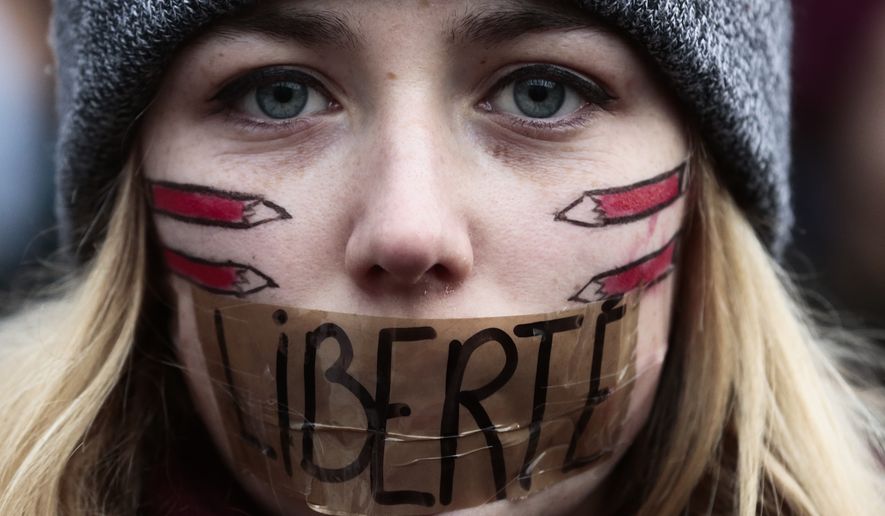OPINION:
ANALYSIS/OPINION:
Although the massacre of Jews, journalists and police officers in Paris has sparked a debate over freedom of expression — both speech and the press — few analysts have focused on the significant deterioration in such rights throughout the world.
In its 2014 report, Freedom House found that only one in seven people lived in a country with a free press — the worst record in the past decade. That’s one in seven!
“The decline was driven in part by major regression in several Middle Eastern states, including Egypt, Libya and Jordan; [and] marked setbacks in Turkey, Ukraine and a number of countries in East Africa,” the report said.
Of the nearly 200 countries surveyed, 63 had a press rated as “free,” 68 rated as “partly free” and 66 rated as “not free.” The world’s eight worst countries: Belarus, Cuba, Equatorial Guinea, Eritrea, Iran, North Korea, Turkmenistan and Uzbekistan.
As part of a strategy to muzzle their critics, many countries also use intimidation and imprisonment. For example, the Committee to Protect Journalists identified 221 journalists in prison around the world in 2014, the second-highest number since the organization began taking an annual census in 1990, with China and Iran being the worst offenders.
“Together, China and Iran are holding a third of journalists jailed globally, despite speculation that new leaders who took the reins in each country in 2013 might implement liberal reforms,” the report said.
Some analysts have voiced concerns that the Paris attacks may result in more restrictions by creating and extending laws to prevent publishing or speaking about issues that may anger certain groups. Such laws include those on blasphemy toward religious organizations and others, such as restrictions on using derogatory language toward groups based on political issues, sexual orientation or race.
“Laws that restrict the content of speech, art, journalists or other forms of expression purely in deference to prevailing political or social sensibilities are never acceptable and are a violation of human rights,” Karin Karlekar, a project director at Freedom House, said in a recent interview.
Then there’s self-censorship. That’s been going on a lot after the Paris attacks, including the decision not to use the illustrations from Charlie Hebdo by a variety of news organizations, including CNN and The New York Times.
Some television anchors, including Tom Tucker of Palm Springs, California, worried about using the word “extremists” on the air. He posted a comment and question about using the description on a journalism website.
“Isn’t the word ’extremist’ a label? Is it not subjective?” he wrote. “I have a growing reservation about using the word to describe anyone. We shouldn’t use labels. Maybe we should simply report the facts.”
I suggested that he use murderers or terrorists. Seriously, do journalists really need to worry what they call people who gun down 17 people? Somehow the standards of objectivity, fairness, balance, nonpartisanship or whatever do not have a place in an analysis of these crimes. The illogical extension of the television journalist’s question would be that the Islamic State and al Qaeda should not be described as extremists. That reasoning is absurd and wrongheaded.
Fortunately, the U.S. public apparently has a good understanding of what it wants. A Wall Street Journal/NBC News poll found this week that 61 percent of those questioned said the media should not limit the release of material — such as the illustrations of the Prophet Muhammad in Charlie Hebdo — even if such publicity would offend certain groups or foreign countries.
It would seem that the public understands the importance of freedom of expression as much or more than do some of our media mavens.
• Christopher Harper is a longtime reporter who teaches journalism at Temple University. He can be contacted at charper@washingtontimes.com and followed on Twitter @charper51.
• Christopher Harper can be reached at charper123@washingtontimes.com.




Please read our comment policy before commenting.